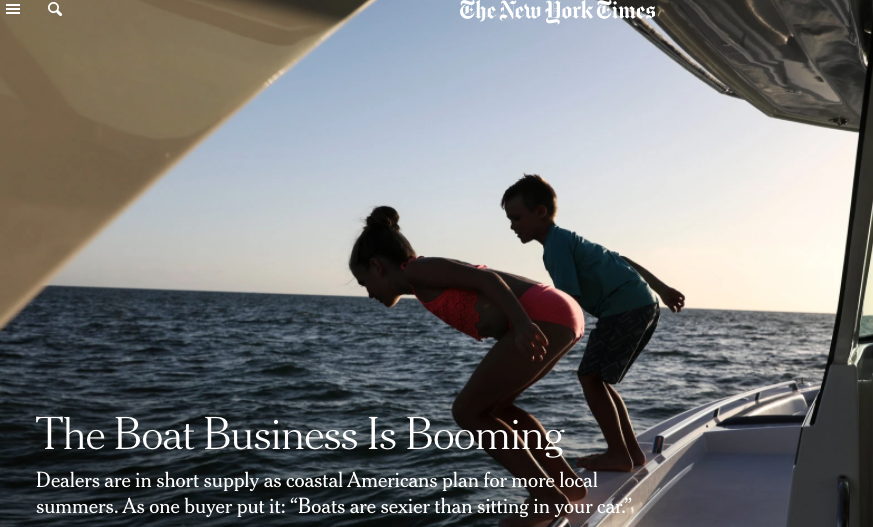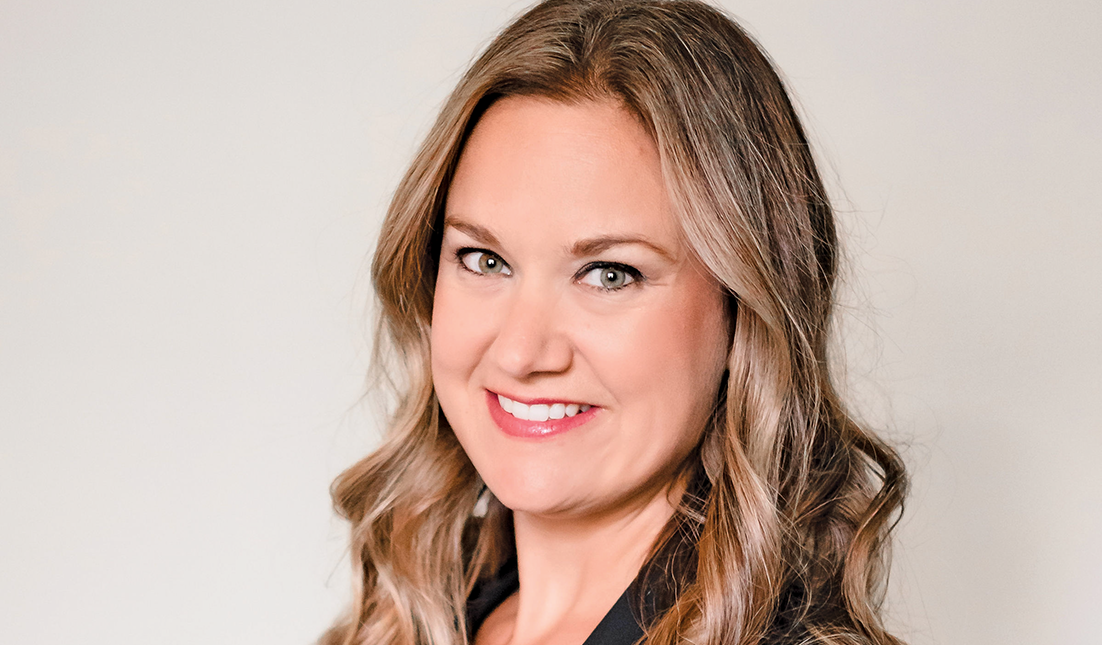Did you see that article in The New York Times?

By David Gee
The good news is The New York Times recently ran a glowing article called The Boat Business Is Booming. You might have seen it. They interviewed dealers (including Quality Boats; Boating Industry 2019 Top 100 Dealer of the Year) who report sales are up in every category, highlighting the fact many boats are going to first-time buyers. They talked to new boat owners about why they made their purchase, and so on. The not-so-good news is the lengthy article also included this sentence by the article’s author: “In comparison to other big-ticket items like planes or even cars, there is surprisingly little to learn when driving a boat.”
“Yikes” was my first reaction. And that’s how I began my e-mail to our veteran boating safety partner, Jim Emmons, Non-Profit Outreach Grants Director, Water Sports Foundation, Inc., who hadn’t yet seen the article at the time. His reply was immediate and strong. In fact, he circulated this e-mail to his boating community contacts all over the country.
“I’m urging The New York Times to produce a follow up to the article The Boat Business Is Booming, which includes misleading and dangerous information. While it’s true that boat sales are booming, it’s fairly obvious that the author is not a boater or the article wouldn’t have included the statement, ‘In comparison to other big-ticket items like planes or even cars, there is surprisingly little to learn when driving a boat.’
Nothing is further from the truth.
As a U.S. Coast Guard recreational boating safety partner, whose career has been dedicated to saving lives on the water, nothing does more to damage the successes we’ve had in reducing America’s boating deaths for the third straight year than misleading boaters about the necessity for boater education. New boaters reading this article about the over-simplification of boat operation will undoubtedly give them a false sense of security, which will only lead to disaster on the water.
On behalf of the entire recreational boating safety community, I request The New York Times to do what’s right and produce a follow up article on the necessity of taking a U.S. Coast Guard approved boating safety course for all boaters, especially new boaters (in some states it is required). To that end, I’d be happy to write the article myself or, if you prefer, assign it to a professional boating industry writer. But the fact remains that thousands of new boaters are venturing on the water for the first time without any instruction and this article has misinformed them about the need for boater education.”
Not to belabor the point, but the opening picture spread of the article prominently features two young children jumping off the bow of their mom’s newly purchased boat – without life jackets! – into open ocean off the coast of Belleair, Florida. Those kids are also shown later in the article on a floating mat in the ocean, again, with no life jackets, though at least their younger sister has one on.
Needless to say, other readers of the article also noticed the line about the relative supposed ease of driving a boat. Here are some of their comments.
“The facts about safe boating and respect for the water and weather are entirely missing here. Having owned all manner of large and small pleasure boats, safety needs to be the FIRST priority, and there should have been at least one paragraph dedicated to resources for boating safety.”
“I’ve been driving boats for 30 years and still have a lot to learn. Not knowing the ocean, how the weather will impact currents and waves in your local oceans is a great way to end up in Davey Jone’s locker. Small boats are treacherous if you don’t know what you’re doing and I can only hope this new influx know how to swim and wear a life jacket.”
“I’m sorry, but this has to be one of the dumbest statements ever made about boats. It only takes four hours to learn to drive a boat? This is why you see stories about people drowning, sinking their boat, running into sandbars and jetties at 40 mph, etc. Operating a powerboat or sailboat properly takes years of experience, especially with vessels larger than 30 feet. Don’t encourage people who don’t know what they’re doing to risk their lives and the lives of other people.“
“The idea that one can master boating in a matter of hours is not only silly but also dangerous. Managing a power boat of any size involves a lot more than simply knowing how to turn a wheel and work a throttle. (This article seemed to focus on power boats rather than sailboats.) There are charts to read, tides, weather, and currents to understand and consider, buoys and other markers to heed, knots to tie, anchors to set, shipping lanes to respect/avoid, engines that fail, electronics that fail, etc. (Anyone who counts on a boat’s electronics to keep or get them out of trouble may be overly optimistic.) If you’re operating a boat without knowing how to manage and repair everything on it, how to interpret water and weather conditions, and how to comply with all applicable maritime laws and regulations, you risk endangering other people as well as yourself. Navigable water is kind of like the novel coronavirus: it doesn’t care about you, and you’re asking for trouble if you don’t pay very close attention to its dangers.”
“In comparison to other big-ticket items like planes or even cars, there is surprisingly little to learn when driving a boat” NO, NO, NO!!! NOT TRUE. This is one of the most dangerous and misleading statements ever made about boating. Trust me (and you may, after 16 years living full time aboard my 38-foot sailboat and with well over 60,000 sea miles and many more to come): 1.The safe operation of any vessel can not be learned with a 4-hour course. That will barely cover the basics. 2. The ocean does not care about your income or your social status. Only knowledge, experience and hard earned “sea sense” will keep you safe. (And maybe not even then.) 3. The most dangerous waters of all are inshore, where (most of) the ignorant, inexperienced and egotistical boaters are found, as indicated in this article. This is the reality of being on the water. It has nothing to do with power vs. sail. In visiting over 47 countries with my boat, the country with the most ignorant and unsafe boat operators is without question, the USA.“
What do you think? Have you seen the article previously? Dd you notice the line about driving a boat? Is this much ado about nothing? Should we just be happy that a mainstream media outlet with 5,841,000 subscribers chose to write a mostly glowing article about the recreational boating industry? We’d love to know your thoughts.





David, thanks for writing this response to the NY Times article that mischaracterizes boating education. While it appears as if the Times is not going to correct their poor judgment advice to new boaters, the responses to the article in their comments section plus the outpouring of critique from the boating safety community including your perfectly written article above may have shed some light on just how important learning to safely operate a boat truly is. Thank you for doing this!